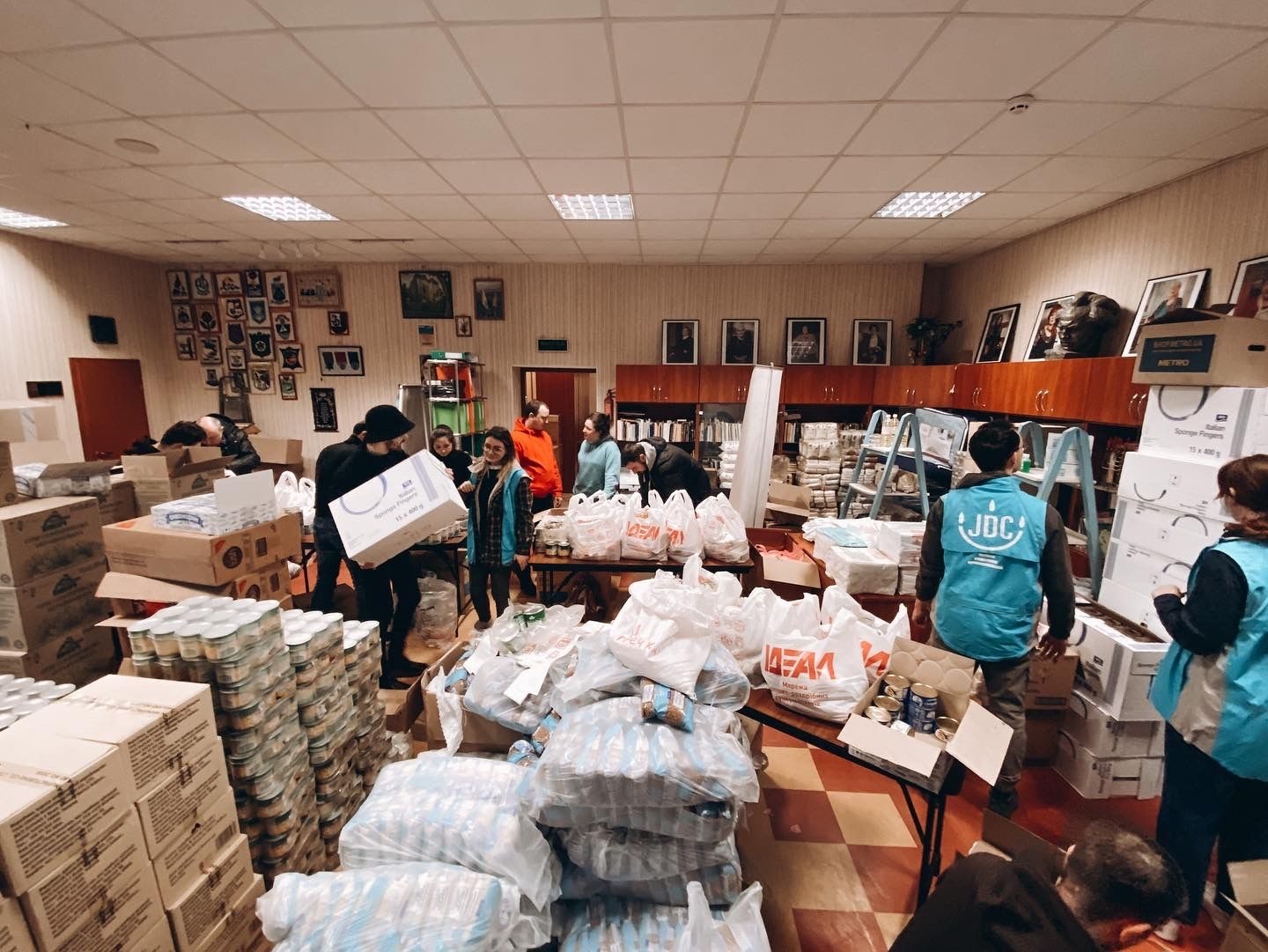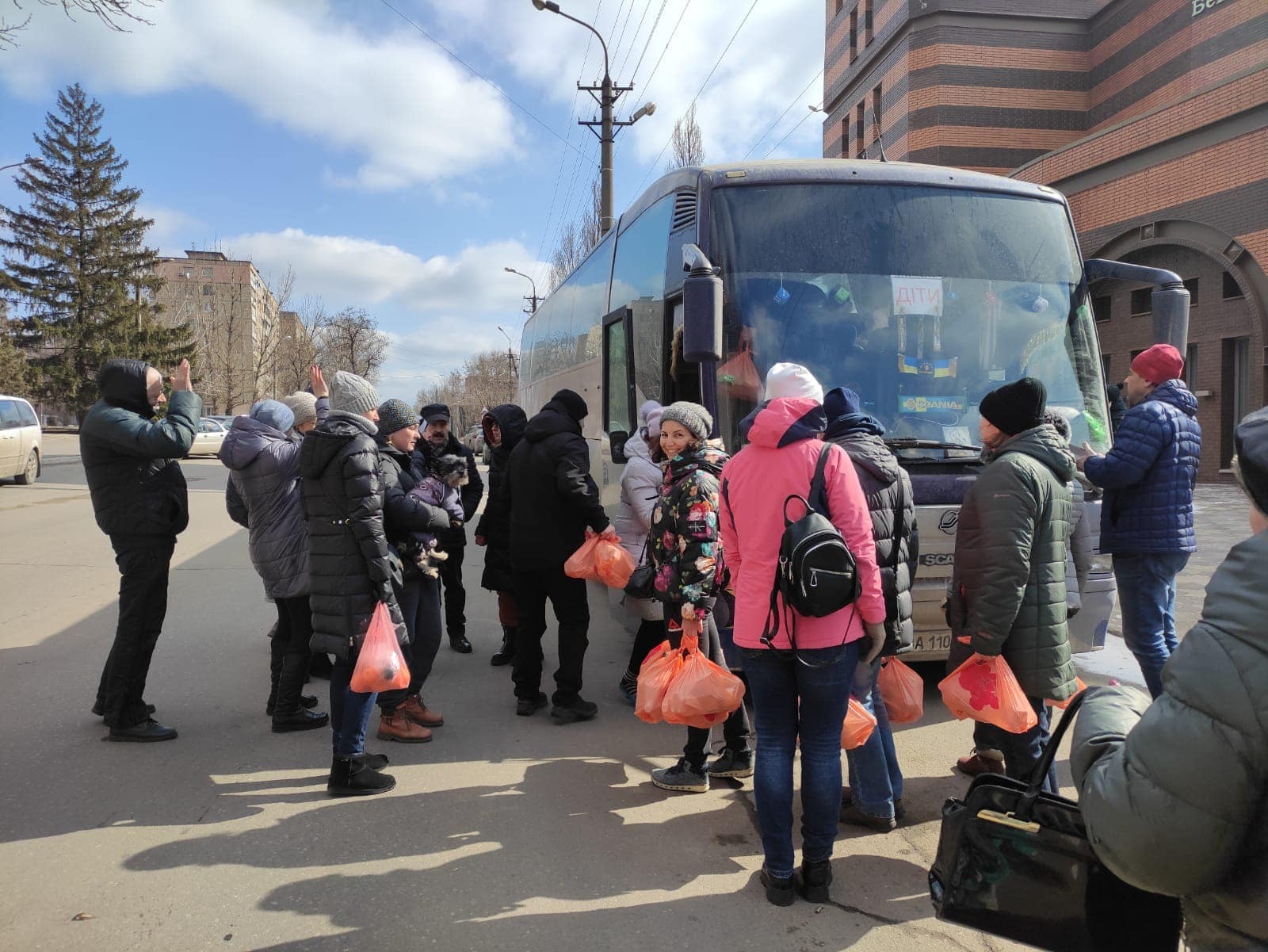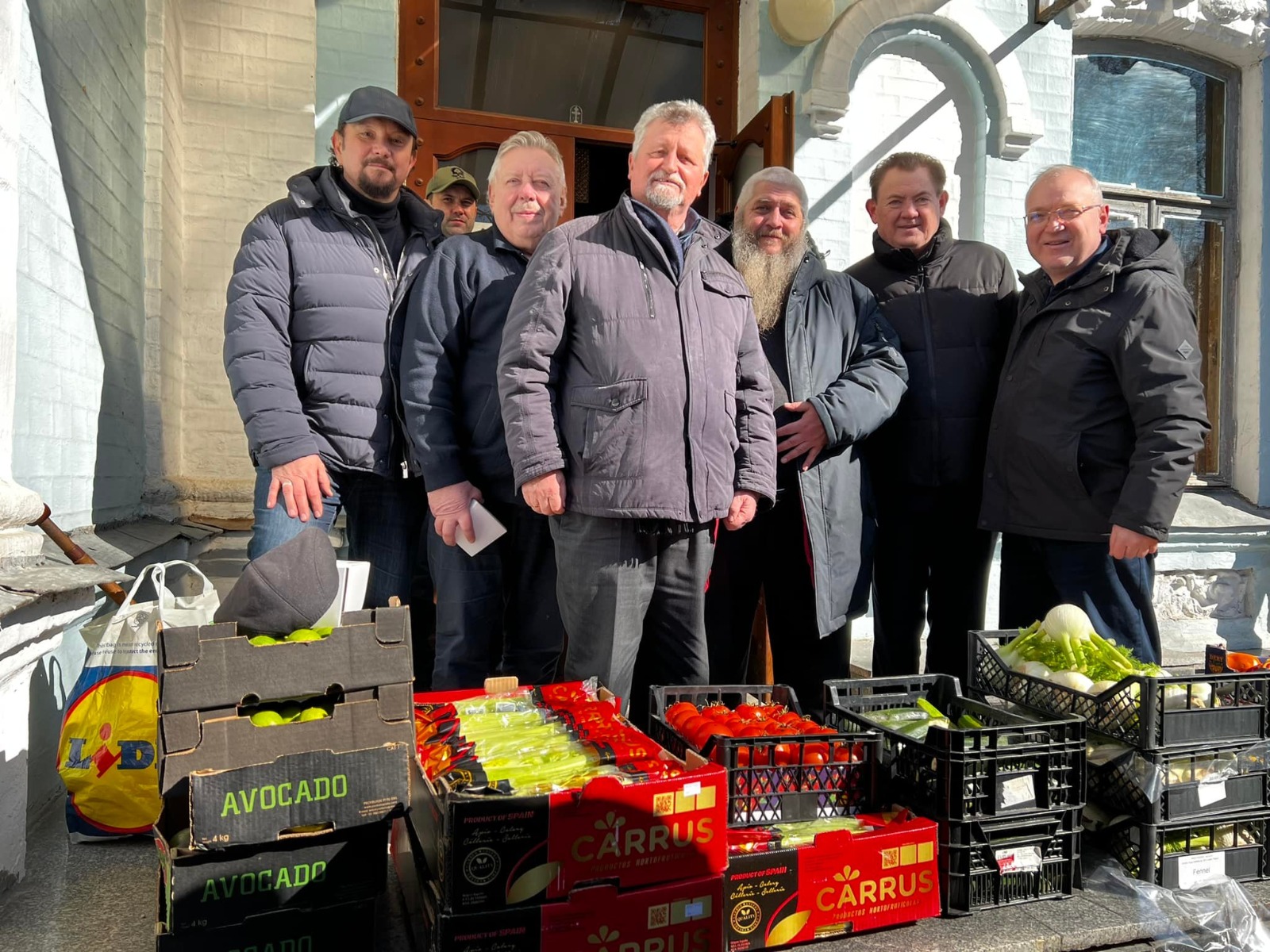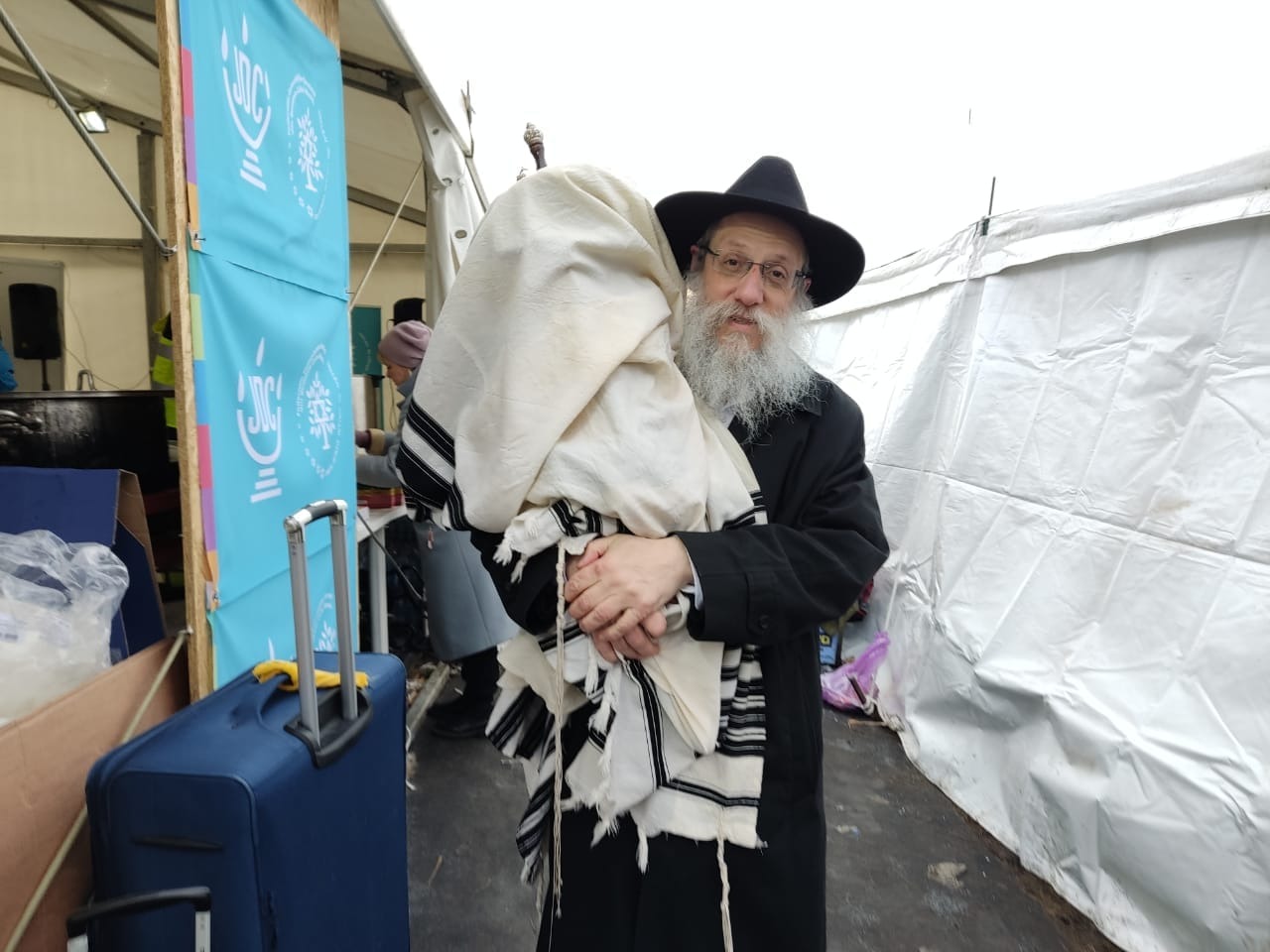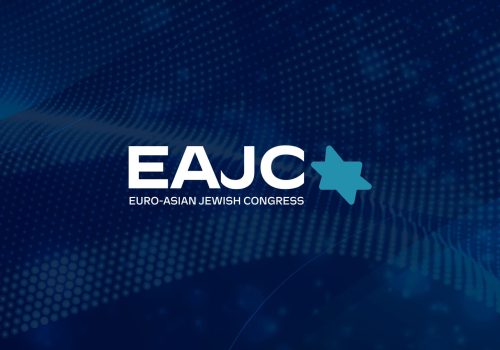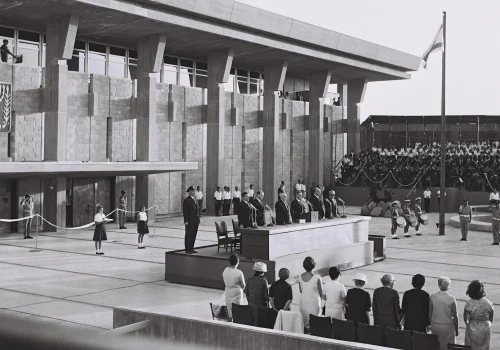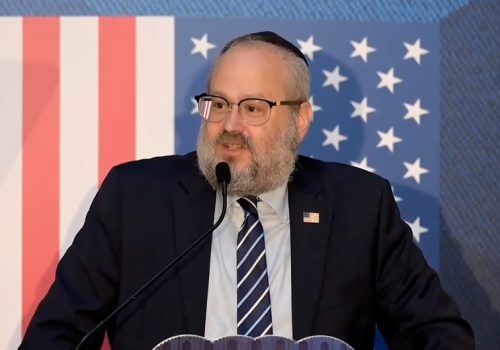- 10/04/2022
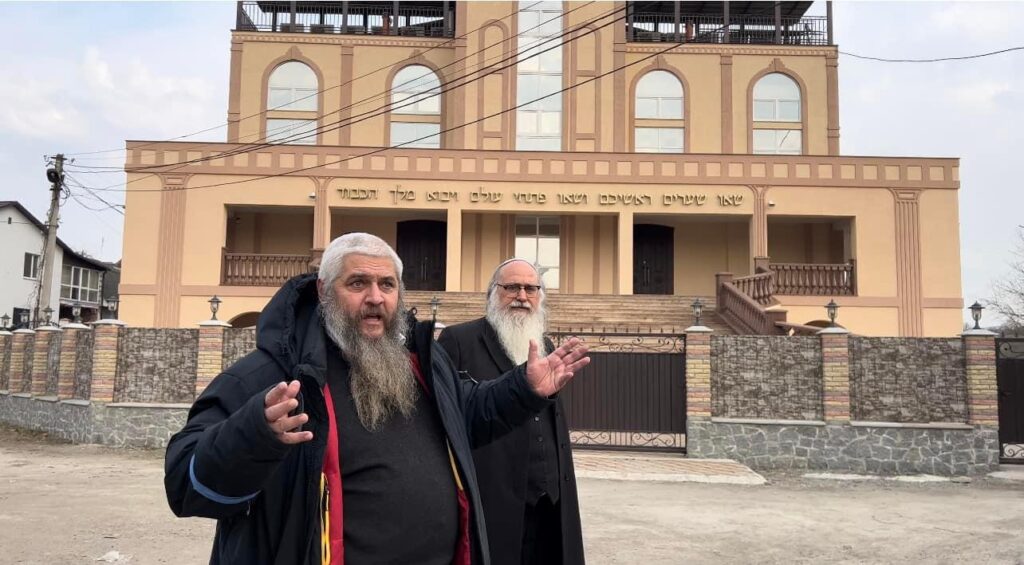
The war in Ukraine has been going on for more than a month. During this time, according to the UN, more than four million people left the country. Half of them are children. Before the outbreak of war, the Jewish community of Ukraine numbered more than 200 thousand people. The Euro-Asian Jewish Congress continues to provide all possible assistance in the evacuation of civilians from hot spots. In addition, the EAJC urgently provided significant financial assistance to the Moldovan community for the reception of refugees. The EAJC opened a special fund for humanitarian aid to the Jews of Ukraine. Anyone can make a donation via bank transfer or through our website.
The EAJC press office talked to the leaders of the Jewish community in Ukrainian cities undergoing a humanitarian crisis to find out how the war has changed their personal lives and the life of the entire community.
Iosif Akselrud, Director of Hillel CASE, Executive Director of the All-Ukrainian Jewish Congress
All branches of Hillel CASE – in Belarus, Moldova, Georgia and Azerbaijan – function as usual, except for Ukrainian ones. In almost all cities where Hillel operates, it is usually a key Jewish organization, while Hillel in Chisinau (Kishinev) truly shows miracles of heroism nowadays. The Jewish community takes out a huge number of people from Ukraine to Moldova. From there they are making Aliyah to Israel. Hillel students work almost 24/7 and don’t even hold their own events anymore – there is no time for that. I am sincerely grateful to our headquarters in Washington, who provided support to the office in Chisinau so that they were able to provide assistance to refugees.
Most of the students of Ukrainian Hillel remained in the country, about a third left. In a couple of weeks we are planning to relaunch our regional office operations from Israel. In total, the Ukrainian Hillel gathered a community of about five thousand students. Almost all of our activists, around 90%, are now volunteering.
The most beautiful and large Hillel chapter in Ukraine – in Kharkiv – is now completely destroyed due to the rocket attack. For us it was a big shock. The big Hillel center was in the very heart of the city. For those who used to attend it that was a real tragedy, almost all of the Kharkiv students and volunteers left – some went abroad, some relocated to other cities of Ukraine. Only two employees remained in a city. We are keeping in touch and helping them as far as we can.
Some fellows, for instance, were evacuated to Lviv, which remains relatively peaceful. Hillel there works on humanitarian aid and the reception of refugees almost the same way as in Chisinau. Students joined in helping the evacuation of civilians at bus and train stations. They coordinate their actions with the local territorial defense, accommodate refugees in the community center and at the Hillel facility itself, distribute food kits, help in finding medicines, and provide first medical and psychological assistance. They help the refugees to spend their free time as well, just to escape the horrors of war: they hold various educational events, arrange Shabbat Reception services. There are now more than 200,000 internally displaced persons in Lviv, more than a million people made their way to Polish border through the city.
A large volunteer center has been set up at Hillel Odessa as well. They are helping those in need, provide elderly people with food. In Dnipro, the Hillel volunteers prepared everything necessary to be able to stay in an emergency for a long time. Activities continue, no matter what: the recent ceremony of Kabalat Shabat took place both offline and online.
Many students went to the front: someone joined the territorial defense detachment, someone was drafted into the army, someone works in hospitals. I’m very worried about the guys. One of our students is an ambulance driver. Sometimes he gets so knocked down that he sleeps right in his car. Students and staff of Kiev “Hillel” joined the volunteer organization “Zgraya”, headed by our graduate Zhenya Talinovskaya. Our other star, Ilona Ilchenko, works as a nurse in a hospital that was at the epicenter of hostilities near the capital. Refugees from Chernigov were accommodated in the premises of Hillel Kiev at the request of the Joint Distribution Comitee.
Mostly, students are busy with lots of volunteer work now. Therefore, the regular educational and entertainment Hillel programs are significantly reduced. At the same time, despite all the horrors of war, we try to distract ourselves and hold some online meetings. For example, we recently hosted an international online Shabbat, there were more than 100 people. Students and leaders of the international Hillel took part, we traditionally celebrated Shabbat and made kiddush together. Now we are preparing a project for Pesach. We will conduct an online training for the guys, where we will teach how to conduct a Seder. Such events are now more than needed. It gives hope and inspiration. I am sincerely grateful to those who are with us during this difficult time.
Liron Edery, Head of the Association for the Development of Jewish Communities of Ukraine, Rabbi of Krivoy Rog
I have been working 24/7 for weeks now, including Shabat if necessary. We managed to somehow spend the last Saturday without phones, this was already a good sign. In addition to the community in Krivoy Rog, I’m also responsible for the recently opened refugees and logistics centers in Uman. We provide food, clothes, medicines – for everyone who lives within 250 km from Uman.
At first, I have to say I didn’t just hope this madness wouldn’t happen – I was absolutely positive about it. Moreover, if I were brought back in time, I would say it one more time – this is indeed just some crazy idea. I still don’t quite comprehend what is going on. I just don’t have a rational explanation for it.
Before it all started, I ended up in Kyiv. Since I am the head of the Association for the Development of Jewish Communities in Ukraine, I do teach in Kyiv two days a week and have to meet with people, politicians, etc. That very Thursday, February 24, I woke up early, at five in the morning, and received dozens of disturbing messages and calls that Ukraine is being attacked. Of course, I immediately got into the car and drove to Krivoy Rog for whole ten hours instead of the usual four and a half.
Like everyone else, I was at a loss and did not understand what was happening. The first reaction was anger. But we organized evacuation routes very quickly, thousands of people were evacuated without even asking if they were Jewish or not. Then we bought food and medicines, realizing that there could be a shortage. It was enough for a few weeks. Then, frankly, we calmed a bit. We saw that Ukraine reacted like one huge entity, like a living organism. The cities did not give up, and this greatly encouraged everyone, including the Jews. We are very proud of Zelensky. We believe that Ukraine is a unique country with a Jewish president, and we are ready to stay in Ukraine and fight for its existence. It is a place where a large number of Jews have lived for at least the last 800 years.
I worked almost non-stop for two weeks until Purim. On Purim, he worked almost until the start of the meal. I told my colleagues in the synagogue, “Get ready for a hundred people.” They told me: “What are you talking about? We evacuated thousands.” Eventually, two hundred people came. I remember how I entered the hall, and there were not enough chairs. And I personally rushed to find them, apologizing to people for the fact that we had not prepared for their arrival. It means two things. First, the Jewish people tend to unite as always, especially at such moments. Secondly, a large number of Ukrainian Jews have not gone anywhere. Mostly women and children left. We have 300 children at school, 100 of them are abroad, and 200 are just outside the city. The old people evacuated as well. Those who are defenseless left. Many men sent their wives and children away, while they themselves remained in the city and helped in any way they could.
I’ll tell you a story. In Uman, we organized a center for the reception of refugees, because Uman is kind of a transit point for further departure abroad. It’s like a narrow bottle neck. At times, the traffic jam there stretched for 10-15 kilometers, people stood there for more than a day. I recently got a call from a woman who left Krivoy Rog with her children on Saturday at 6 am and reached Uman only on Sunday afternoon. It’s only 250 kilometers. Therefore, we decided to establish a transit point there for people who just need to eat, sleep, and relax. One Saturday I was in Uman. There were four families that were just stuck in the city. One of the families escaped from Mariupol which has been under massive attack. When the “green corridor” was opened, they decided to leave, which apparently was not less risky. They traveled 200 kilometers in 12 hours. They were searched at Russian checkpoints 10 times. Before crossing the Zaporizhia border, they survived a brutal rocket fire, and the Ukrainian troops, at their own risk, not checking who was in front of them, opened the gates at the checkpoint and let them in without a search. Two grandmothers, mother, husband and small child. We made a big Saturday meal for them. And they literally cried all night, just looking at the food.
That night the chief nurse of the hospital near Chernihiv was also with us. A road bridge was blown up there last Friday. She and her son ran across the pedestrian bridge, but her husband stayed in Chernihiv to repair the car. And after she crossed the bridge, it was also blown up. Chernihiv was blocked. This woman came to us in Uman and also did not stop crying. Because of the elderly parents who stayed there, because of the husband who also did not leave. She must now take the child abroad and return back to the hospital. And these are only two stories.
The entire educational process in Ukraine has been suspended. Children study at our school via Zoom – but this it has been only the first week. The principal of the school claims that the presence is one hundred percent: children do miss normal life.
If and when this craziness stops, then we will try to get back to normality as soon as possible. But you must understand: Ukraine will not be the same. It will be a completely different country. It will be a European country. We are confident that Jewish life will flourish here even more.
Now we are focused on one thing: saving people. Krivoy Rog is almost not working. This is 600 thousand unemployed people. Therefore, it is more difficult to provide the same attention to the sick, the elderly, and others in need. It is better to take them away and hand them over to people who can take care of them, and switch to those who need our help here.
Routine is what we have lost with the outbreak of war. The return of routine will mean the return of confidence. This will give us strength.
We are currently working on the Seder Pesach. As in previous years, we plan to receive 600-800 people. It is necessary to agree with the city authorities on indulgence in the curfew so that Seder guests could return home later. We will not let them break us and we are trying to keep working the way we worked in peacetime.
Moshe Reuven Asman, Chief Rabbi of Ukraine
When it all started, I thought it was a bad dream. It just didn’t feel real. Understanding came when I saw anti-tank ‘hedgehogs’ in Kiev, when I heard first explosions of the rocket attacks, when planes and helicopters covered the sky – then my world truly turned upside down.
People divided into those who need help and those who could provide it. We evacuated a lot of people and continue to take them out of the city. I don’t have exact figures on how much already left. Tens of thousands. Including from hot spots – Chernigov, Mariupol, Kharkiv. At some point, those who need help became much more than those who can help.
We help refugees find safe place, but of those who have remained in their homes, there are many old people who need medical care, food and water. Among them many elderly people who used to have nurses at home, and now they are left alone. People in a war zones are hiding in basements. Many of them have nothing, no means to get out, and they also need help.
At the beginning of the war, my phone was bursting with calls, and as a result, we set up a call center of my number: on the issue of evacuation – press 1, other help – 2, volunteers help –3. So eventually you can’t call me directly now.
At first, every volunteer in Kyiv did what he wanted. They acted a bit like a partisan. Then I realized that it was necessary to create a system – and now everyone is responsible for a certain type of activity: one prepares food, the other collects medicines, the third is responsible for logistics, the fourth delivers everything by car, the fifth evacuates people. In addition, we have teamed up with volunteer organizations. In order not to interfere with each other, we act together. We made an agreements on the medical equipment supply from Israel, made a deal with Ichilov Center to deploy a field hospital in Poland, in addition to Kokhav Meir, which operates today in the Lviv region. We also deal with individual cases: someone was arrested, someone was detained, someone disappeared. A lot of questions have to be solved at the same time.
From the very beginning of the war, many people called from Israel and other parts of the world and asked for help, to save people from Mariupol, Irpin. There are people who do not know where their relatives are and whether they are still alive. Several families constantly called me, and sometimes we simply have nothing to tell them, there is no connection with these cities.
Most people try to return to everyday routine. At first, people were scared because there was uncertainty. Now we’re even a little used to it. People began to return to Kyiv from Western Ukraine. There they feel like refugees, they have nowhere to live – but here, they think, although it is hard and dangerous, but at least they are at home. Not that situation is much better, but this is how human psychology works. Now people are even going out. Recently there was a violin concert – one member of our community arranged it. She is a volunteer. She has a Jewish family. Mom, dad and three children – they run the kitchen at the synagogue. Now she helps with cleaning and cooking, but in peacetime she studied at the conservatory and played the violin. And she decides to arrange a concert, we showed it live on Facebook.
People come, join, try to help. Everyone offers something. We try to set tasks to everyone as far as we can. We get a lot of feedback from people. Many Jews, rabbis call from all over the world. They want to help, they send humanitarian aid. In particular, the Euro-Asian Jewish Congress helped at the very beginning. But there is simply no time to track every donation and thank personally, we need to save people.
Shlomo Wilhelm, Chief Rabbi of Zhytomyr
I have been living in Zhytomyr for 28 years. During this time, we managed to build a strong Jewish community here. There is a cultural center, an orphanage, a synagogue. The last months before the war, at least 400-500 Jews gathered here during the week. Minyans, prayers, Torah lessons, celebrations, events for the elderly, youth activities, canteen, school. We survived the pandemic and lived quietly, peacefully, we were one hundred percent sure that no war was possible. That it’s all just rumors.
On Thursday morning, February 24th, my wife was at the Boryspil airport, on her way to Antwerp, to visit her family on Shabbat. I stayed with the children. My wife calls at quarter to five. Her plane was scheduled to take off at 5:40, she was waiting for departure. But the flight was cancelled. They said, “The war has begun.” Everything was like a bad dream. I opened my eyes. “War? What war? The confusion began. A few minutes later I heard a siren, and then a loud sound, as if something had fallen and exploded. Planes were flying. Five minutes later I received a call from the town where our orphanage is located: the children heard the sounds, they are crying, what do we do? Five minutes ago I was an optimist, but then it all changed in a moment. I understood: “That’s it, the war began, a rocket fell in Zhytomyr. Our children will not live here while it happens.” The next moment I was already calling to order buses from a friend, a Chabad envoy in the city of Chernivtsi. Then everything was mixed up: one hotel, another hotel, the buses to take the children there and so on.
The third bus was ordered to the Ivano-Frankivsk region. While I stayed in Zhytomyr, I organized food for people, storages, so that there would be something to provide and help – including non-Jewish people too. We bought 30-40 tons of products: sugar, flour, butter, canned food. Literally synagogue was packed with food. We began to arrange buses to the border every day. We had a deal with three hotels: one – in Chernivtsi, the second – in Yaremche, the third – in the Carpathians.
Then I received instructions from my superiors that I also needed to leave the city, because this way I could help more efficiently. And a week after the outbreak of war, I also got on the bus, and we went to Chernivtsi, and then towards the border.
Our orphanage remained in Chernivtsi, but the siren sounded there from time to time too, so we decided that we needed to take them out of Ukraine. Thank God, a great miracle happened, thanks to the Ukrainian and Israeli authorities, who made it possible to take all the children out – without even passports. They were firstly transferred to the city of Cluj in Romania. There is also a Chabad shliach there. We were there for Shabbat. It was already the second Shabbat since the start of the war. There were about 150 people there. And another 50 people from the Cherkasy community. Then we went to Israel, where we got support from the the Jewish National Fund JNF-KKL.
Now the Jewish community of Zhytomyr is divided into three parts: first – in Israel, those who came with us. The second part is in Chernivtsi, there is more than 100 people. And more than 300 families, almost a thousand people, remained in Zhytomyr. There are also children there.
They are eager for peace. There are those who go to the minyan all the time, work as volunteers and distribute the food. They are doing everything possible to return to normal life. In the evening you can not leave the house due to curfew. But people are still trying to live a normal life, trying to return to routine. Schools have resumed learning only remotely.
After a month of war, people began to open up shops. They understand that they need to try to live a life they used to. Just like it happens in Israel at the times of escalations. The Jewish school and synagogue in Zhitomir are guarded 24/7. Thank God everything is good for now. Everyone is waiting for when it will be possible to return back.
“Today is a very difficult time and we cannot but talk about Ukraine and its tragedy. A terrible humanitarian crisis, destroyed cities and fates, millions of refugees, complete uncertainty and loss… Hearing the stories of the witnesses, including leaders of Jewish communities, is not easy, but we must do our best to make their voices heard.
Many Jews fled, someone, thank God, got to Israel and with God’s help will find a new home here. But many remained. And for sure, for many, life will never be the same. We hear calls for help from local rabbis and community leaders. Today, prayers in synagogues are much more passionate, and the doors are open to all those in need. A new reality is emerging and we must deal with it.
We have no right to stay aside. We, the global Jewish community and public figures, must do everything in our power to stop the bloodshed, human tragedy and bring peace closer. We have an obligation to help all those affected now and we will have to rebuild the Jewish communities later on.
These days, many were impressed by the photos taken on Shabbat, where religious Jews were sitting in front of a computer with their phones. One of them, Rabbi Zilberstein from Chernihiv, explained to his little daughter that G-d had given him a rare opportunity to save 65 lives. Even in the darkest time, there will always light.
We believe and pray that soon the Jews of Ukraine will be able to return to their regular peaceful life, but until then it is our moral duty to unite around them, support them and help them out of trouble,” – said the President of the Euro-Asian Jewish Congress Dr. Michael Mirilashvili.
Photo: Chief rabbi of Ukraine.
